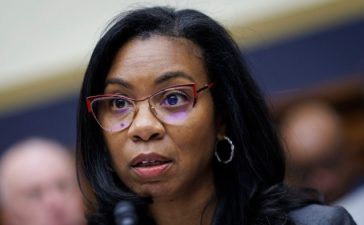Barclays is the second brokerage to have the equivalent of a “sell” rating on the stock, which now has its most number of bearish recommendations in at least two years, per LSEG data.
The stock accounts for a hefty 7% of the S&P 500’s market weight – the broader index was dragged 0.4% lower on Tuesday. Apple rose nearly 50% in 2023, hitting a record high in mid-December in a year when Big Tech led the markets.
Apple has been grappling with a demand slowdown since early last year and has forecast holiday-quarter sales below Wall Street estimates. Its performance in China has also been a worry after the revival of local rival Huawei.
“The iPhone 15 has been lackluster and we believe iPhone 16 should be the same,” Barclays analyst Tim Long said in a client note, pointing to the China weakness as well as subdued demand in developed markets.
The brokerage also warned risks were mounting for Apple’s services business, which has come under the scanner in countries including the United States over app store practices.
Discover the stories of your interest

Long is rated four out of five stars for his recommendation accuracy on Apple, according to LSEG data. The business has often outpaced growth in Apple’s hardware segment in recent years and now accounts for nearly a quarter of the company’s total revenue.
The shares drop on Tuesday was set to erase about $90 billion from Apple’s market capitalization.
Barclays downgraded the stock to “underweight” from “neutral” and trimmed its 12-month price target by $1 to $160. Before Tuesday, Itau BBA’s “sell” was the only bearish rating on Apple since July 2022.
Analysts, on average, rate the iPhone maker “buy” with a median price target of $200. The company trades at about 28.7 times its 12-month forward earnings estimates, much higher than the S&P 500’s 19.8.











